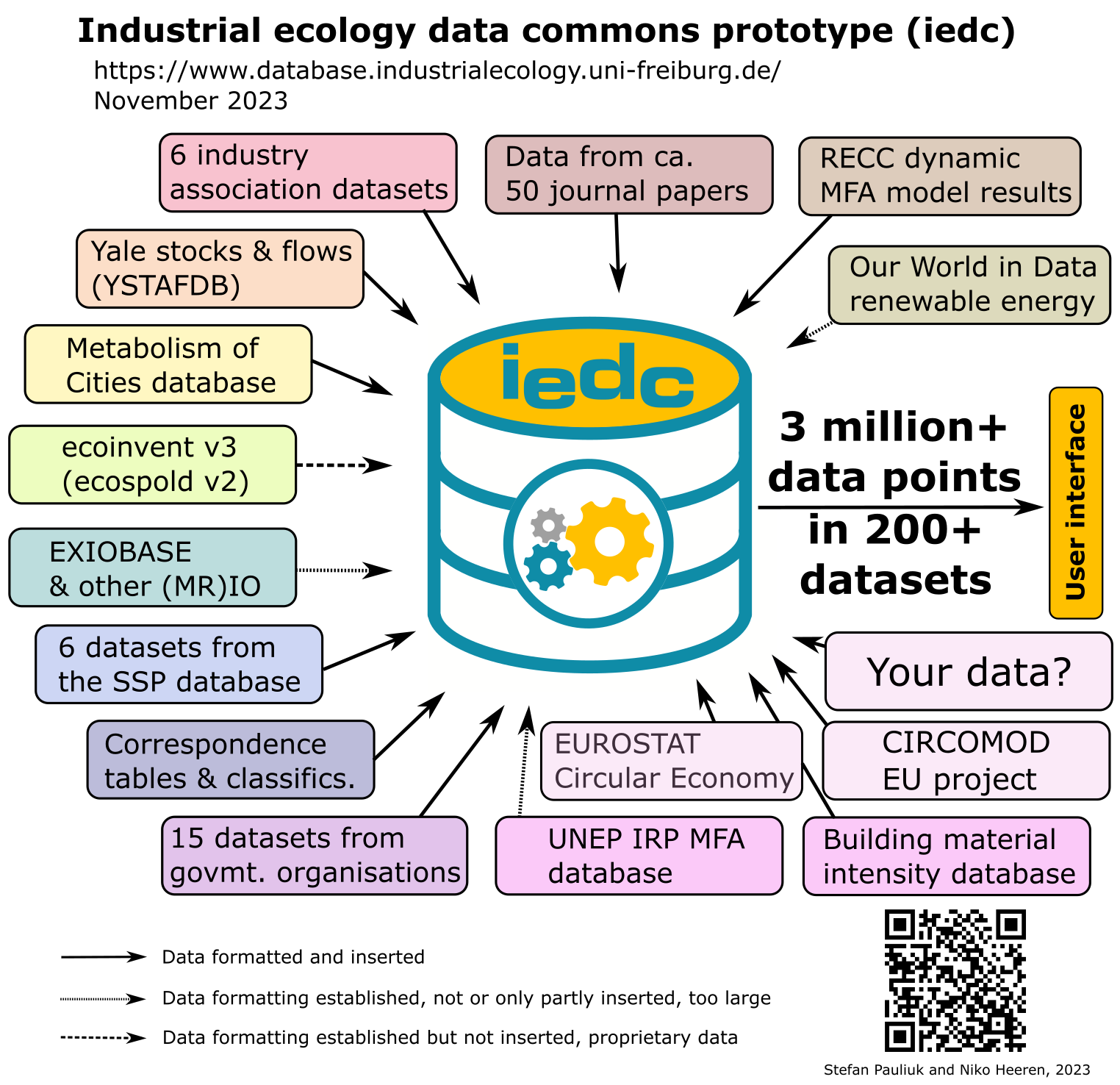The industrial ecology data commons (iedc) is a prototype for an industrial ecology community database. It currently contains about 200 IE-related datasets with more than 3 million data points from the literature, including stocks, flows, process descriptions, IO tables, material composition of products, and many more. It has been online since 2018, and is continuously improved and expanded (Figure).

All data are structured according to a general data model for socioeconomic metabolism, published in the Journal of Industrial Ecology (https://doi.org/10.1111/jiec.12890). With the iedc, we want to show how data storage and exchange in sustainability science could look like in the future, and we developed and tested some of the building blocks of the required infrastructure.
You can access the database via https://www.database.industrialecology.uni-freiburg.de
Today, we are happy to announce another major update of the industrial ecology data commons (iedc). Over the last months, we inserted new data from ca. 10 journal papers from our peers, parsed and inserted the EUROSTAT circular economy indicators, and showed that a link between Our World in Data (OWID) and the iedc is easy to establish, using renewable energy indicators as an example.
We also have a new search interface available, where one can first choose one of the data types, after which the different classification items (regions, materials, products, years, etc.) for which data are available are listed. After selecting one or more classification items, all available datasets that contain data for this classification item in the given aspect are shown and can be previewed and downloaded.
We invite you to have a look at the iedc and try out the search interface! We are interested in your feedback and bug reports. We welcome data contributions from the IE community (templates are available upon request) and would like to stress the need for a general debate on how our global community of sustainability scholars should deal with its own data base in the future to make better use of the rich empirical material, indicators, and modelling results that are out there.
Stefan Pauliuk, Nildem Atasayar, both from the industrial ecology group in Freiburg, Germany, and all data contributors
